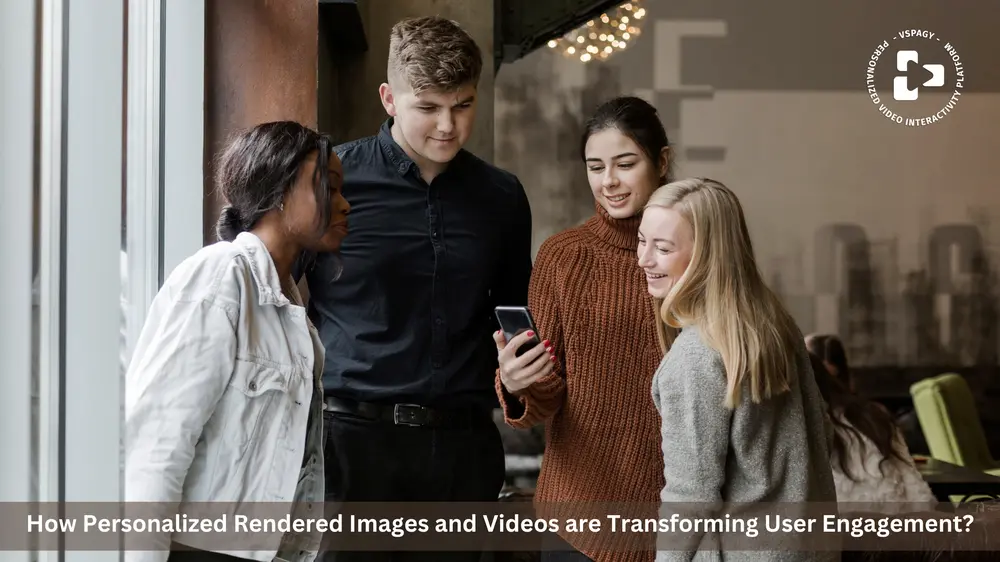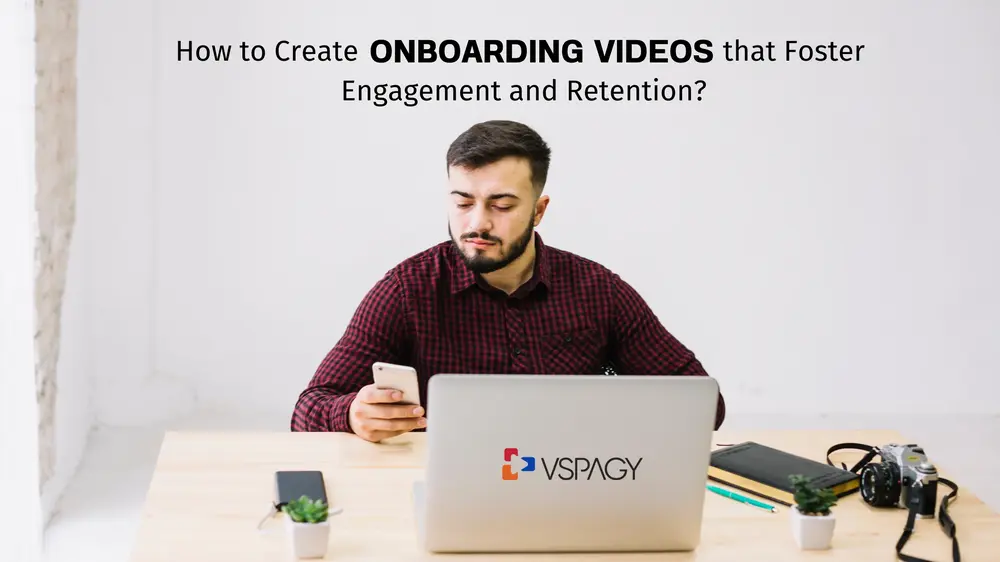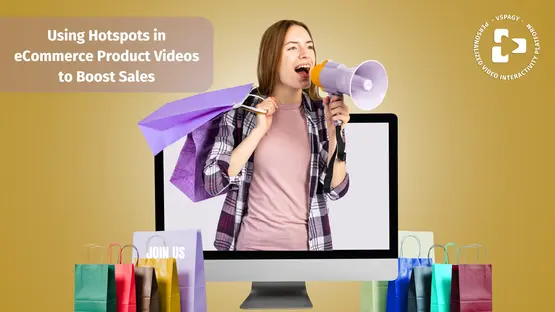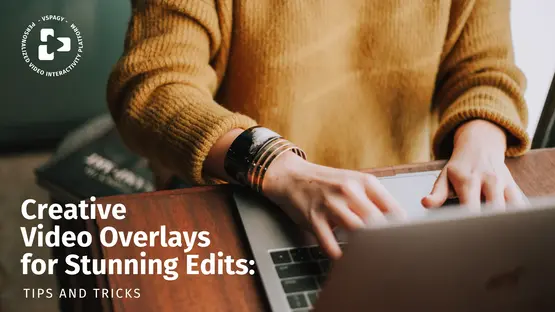The Role of Interactive Buttons in Creating Engaging Video Content
June 26, 2025
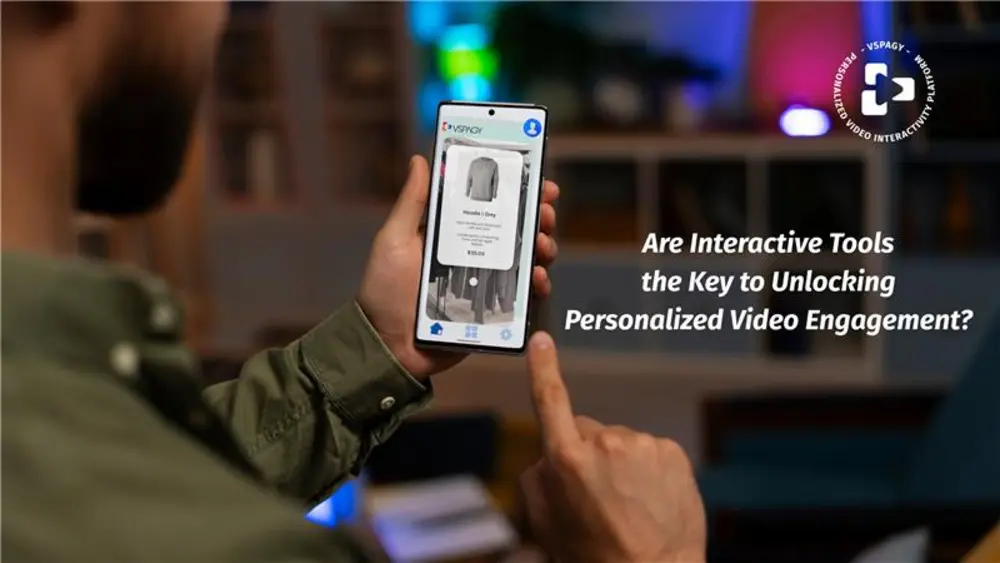
Introduction
Nowadays video content has become an engagement royalty in the ever-evolving fields of online education and digital marketing. However, watching videos passively is no longer enough. These days, customers expect content personalization and interaction. Interactive buttons are clearly redefining the user strategy for video content, turning passive viewers into participators.
With this article, we will try to understand the increased popularity of interactive buttons, their various applications, and how to create an interactive video that prompts real action and engagement from the users.
What Are Interactive Buttons in Video Content?
Interactive buttons are clickable elements that allow viewers to take specific actions within a video. These might include:
Providing answers
Clicking on links
Moving from video's one segment to another
Giving feedback
Buying products
Scheduling/Booking appointments
Unlike linear video, which users watch from start to finish with no control over viewing, interactive video lets the viewer go wherever he or she pleases. Interactive buttons establish points of decision, encourage investigation, and make viewers actively engage.
Why Interactive Buttons Matter for Engagement
A Forrester study indicates that interactive video can get viewers engaged by 47% more than its passive counterparts. This is because interactive buttons:
Shatter the monotony of watching passively
Take back control from the viewer
Enhance information retention
Trig stinging calls to action (CTAs)
They are likely to watch for longer, act upon requests, and convert-if conversion means registering, purchasing, or seeking additional information.
Advantages of Using Interactive Buttons in Videos
The interactive buttons in videos provide the following advantages:
-
Enhance Viewers' Retention
Active engagement fostered by interactive buttons gets viewers glued for longer durations. For instance, adding a poll or quiz halfway through an educational video can help decrease drop-off by a large margin.
-
Make the Experience Personalized
Interactive video enables viewers to decide what comes next-e.g., pick a product category or plot-and thus offer a personalized experience that enhances relevance and satisfaction.
-
Prompt Instant Action
Rather than linking to external URLs, interactive buttons allow for in-video CTAs such as "Buy Now," "Learn More," or "Schedule a Demo." This minimizes friction and enhances conversion rates.
-
Monitor Data and Insights
Interactive elements can be monitored to capture viewer behavior metrics, including:
Which buttons were clicked?
Where did user usually drop (Drop Rate)?
What was the most interacted content?
This information can then be used to guide future content strategies.
-
Enhance Learning Outcomes
In eLearning, quizzes, checkpoints, or navigation buttons within interactive videos can enable learners to improve retention and get instant feedback on themselves.
Typical Use Cases for Interactive Buttons
Interactive buttons can be helpful in the following situations:
-
E-Commerce Videos
Accompany "Shop Now" buttons on product videos that take shoppers directly to check out on e-commerce platform. You can also display alternatives, sizes, or reviews when a product is clicked.
-
Corporate Training
To test employee knowledge, include quiz buttons or scenario-driven decision trees. For instance, "What would you do here?" choices can branch to various video outcomes.
-
Marketing Campaigns
Using buttons that gather e-mail addresses of the user, redirecting to landing pages, or sign up for newsletters without requiring them to leave the video to generate leads.
-
Educational Content
Enable students to answer questions or raise a question midway through a video, go back over sections they'd like to review, or go deeper with branching paths by using buttons.
-
Interactive Storytelling
Giving audience the power to decide the direction of a story. Each click can take them to a different path in the story, increasing engagement and repeat views.
How to Make an Interactive Video with Buttons
Designing an enjoyable, interactive video requires more than just throwing buttons on it- it requires planning, the proper equipment, and attention to user experience.
-
Step 1: Define Your Goal
Begin by determining what you want your interactive buttons to do:
More clicks?
More conversions?
Learning validation?
Customer feedback?
Knowing what you're looking for will inform your video design and button placement.
-
Step 2: Choose the Right Video Platform
There are hundreds of options for interactive video solutions which offer drag-and-drop features, advanced data tracking, and customizable CTA buttons-all within one powerful, brand-friendly platform.
-
Step 3: Plan Out Your Interaction Points
Determine where buttons will show up in the video and what they will make occur. Effective uses are:
Start: "Choose Your Path"
Halfway mark: "Answer a Quick Question"
End: "Sign Up for a Free Trial"
-
Step 4: Design Clear and Attention-Grabbing Buttons
Your buttons must be visually different, large enough to click on without fuss, and marked with bold CTAs such as:
"Try It Now"
"Continue"
"Reveal Answer"
"Download Guide"
Ensure they're mobile-optimal and appear at intuitive points.
-
Step 5: Test and Improve
Pre-launch, test your video for:
Button clicks
Responsiveness on different devices
Completion and drop-off rates
Viewer satisfaction
Use this information to refine subsequent iterations and modify button placement, timing, or phrasing.
Best Practices for Interactive Video Buttons
Keep It Simple: Do not overwhelm viewers with more than one button at a time.
Use Action-Oriented Language: Inform users precisely what will happen-"Click to Get 50% Off."
Time Button Appearances Smartly: Do not make buttons appear within high-attention spots of the video.
Make Buttons Unobtrusive: Apply mild animation or design according to your brand without taking attention away from the content.
Make it Accessible: Incorporate alternate navigation and screen reader-accessible labels.
Future of Interactive Video Content
Once AI and personalization tools evolve further, interactive video is likely to get even more interesting, too. Real-time content modification will be based on viewer feedback, voice-led guidance, and button control by hand gestures are some of the features that might become the standard soon.
Those businesses that move quickly on this trend will be ahead of the curve in delivering immersive, data-driven, and conversion-focused video experiences.
Metrics for Evaluating Interactive Button Success in Video Content
To know how effectively your interactive buttons are functioning, you must monitor their performance. Some of the most important metrics to monitor are:
Click-through Rate (CTR): Measures how often viewers are clicking on your buttons compared to how many times they're seen. A high CTR indicates optimal button placement and call-to-action messaging.
Engagement Rate: Tracker of what percentage of the video is watched through and where dropout happens.
Conversion Rate: Signals how many users completed the desired action (e.g., registered, bought).
Button Interaction Heatmaps: Show where most people click the most on the screen.
A/B Testing Results: Experiment with alternate button copies, locations, and colors to achieve maximum results.
Gather and track such data using VSPAGY's built-in analytics dashboard. This knowledge enables you to refine and tailor your content for reuse in subsequent campaigns.
Challenges and How to Resolve Them
Though interactive buttons have advantages, but also come with their challenges:
-
Compatibility Issues
Not all social platforms and video players support interactive content.
Solution: Put your videos where sites provide interactive options and supply normal content to unsupported sites.
-
Overcomplicating the Experience
Too many buttons are a barrier to the user.
Solution: Use no more than 2-3 buttons per interaction point, and let each one be for a distinct purpose.
-
Poor Mobile Optimization
Bad placement or tiny buttons are inconvenient on mobile phones.
Solution: Keeping the design mobile friendly in the development stage and beta-testing across multiple devices before going live for use.
-
Data Privacy Issues
Interactive video features may raise privacy concerns due to data collection, potentially leading to regulatory challenges under GDPR and similar data protection laws.
Solution: Have a consent-based design and make data collection routines publicly available.
Future-proofing towards solving these issues is how you are able to provide a smooth, seamless interactive video experience.
Frequently Asked Questions
What are interactive buttons in video content and how do they work?
Interactive buttons are clickable elements present within videos that let viewers take actions like answering questions, making purchases, or navigating scenes. They transform just viewing content into an engaging & personalized experience that encourages active participation.
Why should marketers use interactive buttons in their videos?
Interactive buttons boost engagement, viewer retention, and conversions. By encouraging interaction, they break monotony, prompt instant responses, and guide viewers to take specific actions without leaving the video environment.
How can interactive buttons improve learning outcomes in educational videos?
Educational content can be improved by embedding quizzes, feedback forms, or checkpoints, through interactive buttons for reinforce learning, increasing retention, and allow learners to self-assess in real time, making educational content more effective and responsive.
What platforms can help create videos with interactive buttons?
When choosing an interactive video platform, top options like VSPAGY, Wistia, Vidyard, and Vimeo offer easy button integration, real-time tracking, and enhanced viewer engagement through smart analytics.
Conclusion
Interactive buttons are not a design trend; they're a paradigm shift in audience engagement and in response to video content. If you work in marketing, education, or e-commerce, creating an interactive video with optimal button placement can actually drive engagement, conversions, and brand loyalty. Through the integration of apparent objectives, legitimate gear, and intuitive design, interactive video becomes a powerful tool that empowers the viewer to be in control, turning your content not merely watched but experienced.
Recommended Articles:
-
Customization vs Personalization what drives better results.
-
How interactive shoppable videos are changing customer shopping experience.
-
Learn Creating a Video Ad online in minutes.
